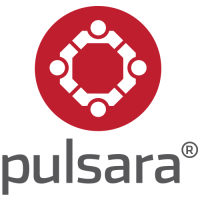New Module Assists with Triage and Tracking of Patients During a Crisis
Bozeman, Mont., — Pulsara, the leading telehealth, communication, and logistics platform that unites teams and technologies across organizations during dynamic events, announced today the official release of new functionality designed for incident management. The new platform capabilities are designed to help triage and track patients during mass casualty incidents (MCIs), multiple patient incidents (MPIs), floods, evacuations, and other disasters, as well as major planned events (e.g., concerts, sporting events, etc.). The platform provides responders with a clear line of communication around every patient on a familiar platform they use every day for patient care. When a stress event occurs, no additional preparation or training is required; everyone can continue using the same platform to respond confidently and efficiently in a crisis.
The first major test of the new functionality occurred in October in Lubbock, Texas, as the FAA conducted a full-scale crisis exercise at Lubbock Preston Smith International Airport. First responders from multiple agencies assembled to respond to a drill scenario that involved a rental truck crashing through tarmac fencing and colliding with a plane that was preparing to take off, injuring 56 passengers. During the simulation, first responders and city agencies used Pulsara’s Incident Management functionality to enter patient information, communicate, and coordinate care.
Pulsara’s Incident Management functionality enhances existing workflows with an intuitive way to log triage information and transmit it to the right people. When triaging patients during MCIs and MPIs, emergency responders typically use paper triage tags or armbands to show each patient’s condition. Pulsara complements that workflow by allowing clinicians to scan triage tags or armband barcodes to instantly create a new patient channel in the Pulsara app. Responders can then enter patient information and log the patient’s triage status using green, yellow, red, and black labels that match the colors of traditional triage tags.
During the recent drill in Lubbock, responders triaged patients and fitted them with armbands used statewide across Texas. Using Pulsara, they scanned the armband barcodes to create new channels for each patient, adding name, date of birth, patient condition, and photos of each patient and their injuries. The process worked well enough that Lubbock responders felt comfortable without triage tags. Brent Fox, NREMT-P, Logistics Chief and Emergency Preparedness Specialist for University Medical Center Emergency Medical Services (UMC EMS) - Lubbock, explained: “Using paper triage tags can cause unneeded confusion or lost time on a scene where resources are overloaded and seconds count. Pulsara allowed us to begin a transition away from paper triage tags. The application is so user-friendly that my personnel enjoyed being able to streamline the triage process on a busy scene. Our responders were able to locate, triage, and start the patient channels with ease.”
As clinicians from various organizations worked to treat patients who had been triaged, they scanned patients’ armbands to join the Pulsara channels. From there, they were able to view information from other responders and add new information. Incident command monitored the situation using the Pulsara HQ dashboard, tracking the number, status, and severity of patients. They then used this information to coordinate with nearby hospitals and healthcare facilities.
Fox explained how the software created shared awareness among responders. “Pulsara was able to connect multiple command staff and resource personnel that previously would have tied up radio traffic for communication. The application allowed us to communicate less on the radio, as everyone could see what was happening in real time.”
Pulsara’s Vice President of Strategic Accounts, Corey Ricketson, said the system successfully helped cut down on confusion between agencies. “We have cracked the nut on patient tracking. When everyone has shared awareness, it creates a more efficient response to an incident. That way, we know how many patients we have and what their triage colors are, and we can distribute them to hospitals. We have solved a problem that has perplexed the industry for decades.”
According to Fox, using the platform helped responders keep track of patients and coordinate transport for the right patients at the right time. “Pulsara allowed everyone on scene to have full visibility from any location once they joined the incident. Having this visibility on scene allowed us to ensure the correct patients were transported at the correct time. When the last patient left the scene, we were able to have real-time status and 100 percent accountability for all patients that were transported.”
Once patients arrive at the hospital, hospital staff scan the patient’s armband to locate the patient channel and add themselves to it. The hospital can access all information the first responders uploaded, add their own as the patient progresses, and keep in touch with everyone involved in treating the patient. Pulsara creates an active record of where each patient is and what treatment they’ve received, especially in interactions that cross multiple organizations. This functionality helps track patients throughout their journey and assists with the reunification process.
“Nothing we have ever done has allowed us to track patients in real time like Pulsara,” said Fox. “Having the ability to attach photos of the scene, patient injuries, and other critical information allowed the hospitals to have the correct resources for the patients upon arrival, and gave the hospital teams a size-up without having a representative on scene.”
For more information, visit https://www.pulsara.com/incident.
About Pulsara
It’s about people. During the most critical moments in life, Pulsara unites distributed teams and fragmented technologies as dynamic events evolve on a scalable communications and logistics platform, improving the lives of people in need and those who serve them.
We envision a world where needless suffering is eliminated because communities can unite and communicate without friction. Pulsara customers report average reductions in treatment times of between 22% and 68%. For more information, visit www.pulsara.com.












